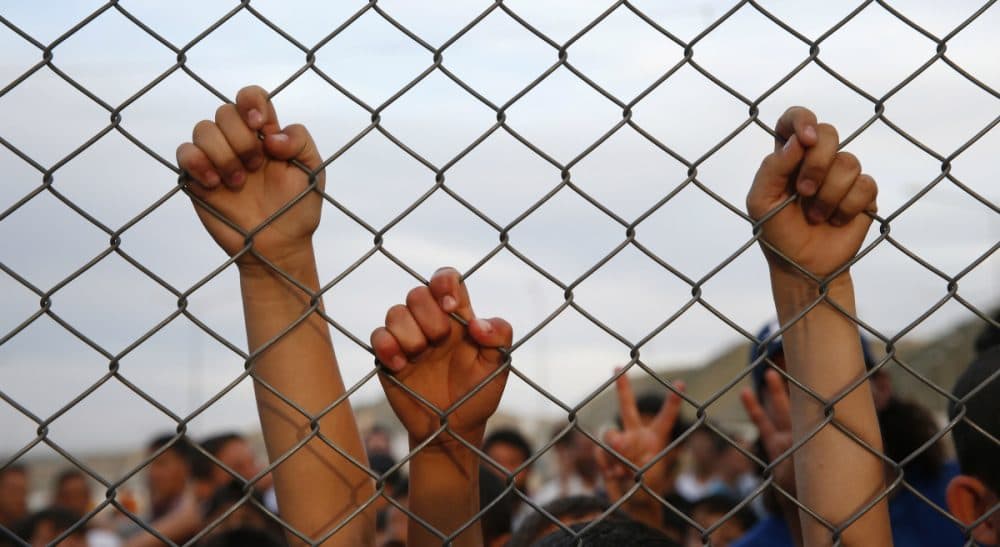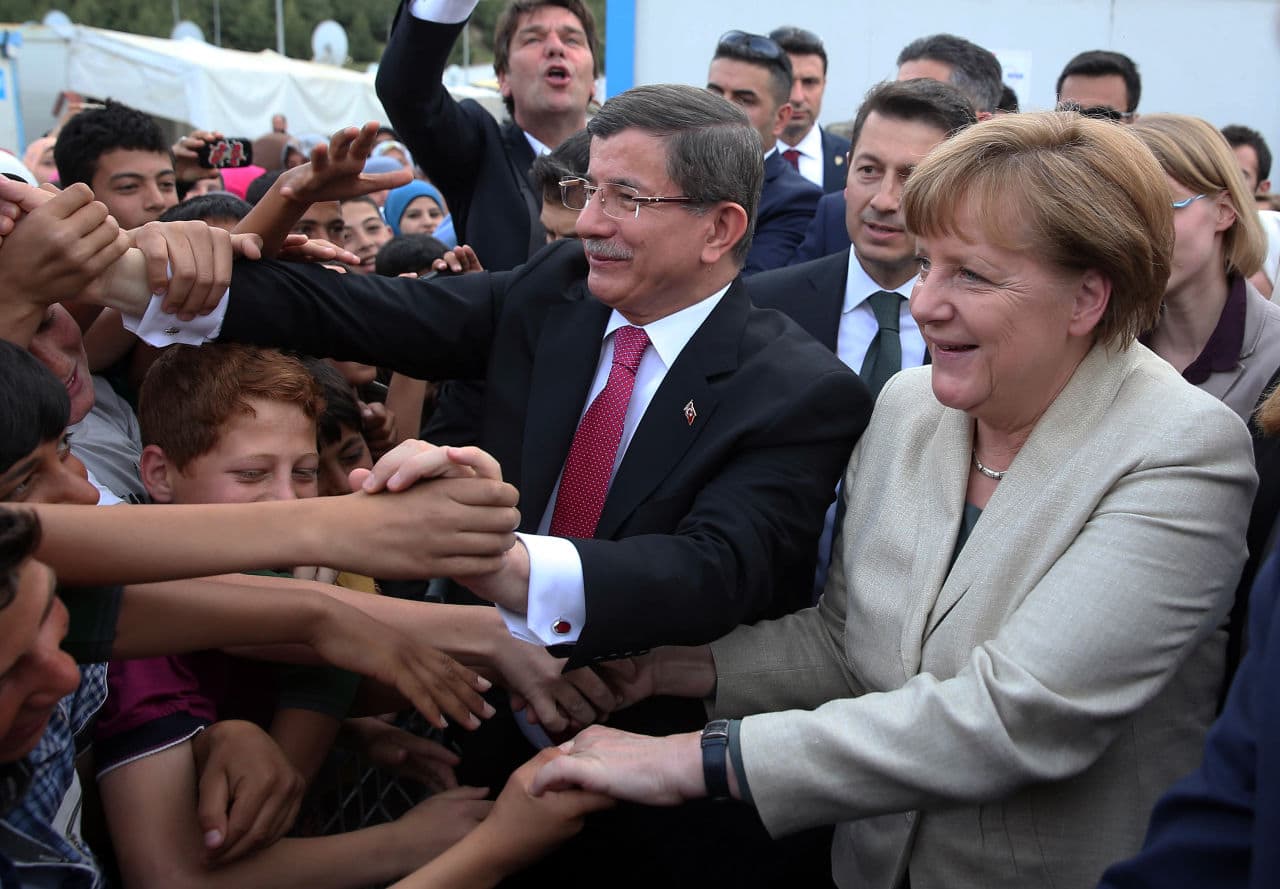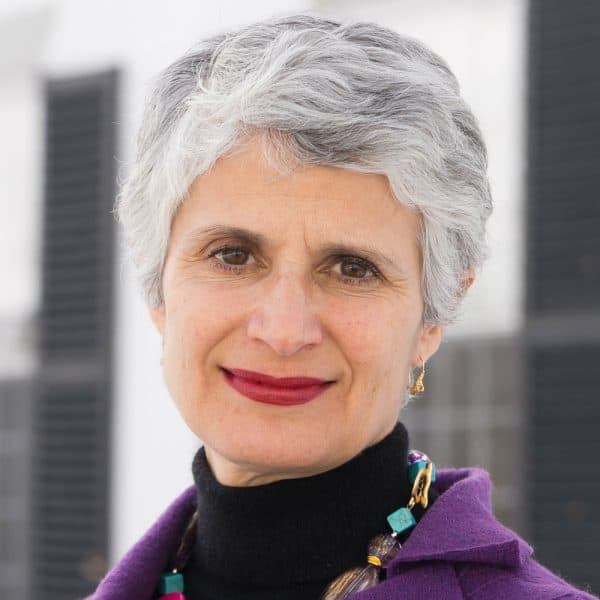Advertisement
A Wake Up Call For Western Europe: 30 Children Allegedly Raped In A Turkish Refugee Camp

At a time when the human tragedy that is the global refugee crisis appears to be losing its capacity to shock, last week’s reports of child rape at a Turkish camp managed to rouse the world’s attention.
According to BirGün, the Turkish newspaper that broke the story, a male employee at Nizip Refugee Camp in Antep, one of the many camps sheltering Syrian refugees in Turkey, raped at least 30 children between September 2015 and January 2016. Referred to in records only as “E.E.,” the perpetrator is reported to have lured boys to the lavatories by promising small amounts of money.
At a time when the human tragedy that is the global refugee crisis appears to be losing its capacity to shock, last week’s reports of child rape at a Turkish camp managed to rouse the world’s attention.
Remarkably, E.E. was apprehended only after military personnel noticed that someone was taking children to a spot out of range of security cameras, and they have now gone on record criticizing Turkey’s Prime Ministry Disaster and Emergency Management Authority (AFAD), which runs the refugee camp. Such a scenario raises grave doubts about the ability of the AFAD to protect the camps’ most vulnerable residents.
To be sure, Turkey faces enormous challenges. It now houses the largest number of refugees of any nation in the world, including an estimated 2.7 million Syrians, according to Turkey's Ministry of Foreign Affairs. But this does not detract from the horror of the rapes at Nizip, continued allegations of Turkish border guards firing at Syrian refugees trying to cross into Turkey, or of Turkey's alleged practice of returning refugees to Syria and Afghanistan with almost certain risk of being persecuted for having fled in the first place. (Notably, only eight of the rape victims’ families were willing to give official testimony; the others feared that they could be deported back to Syria if they joined the suit.) Against this backdrop, it’s hard to take any comfort in the words of politicians like European Council President Donald Tusk, who has attested that Turkey is the "best example in the world of how to treat refugees.”
Clearly some rethinking is needed.

It’s a horrible irony that German Chancellor Angela Merkel, representatives of the European Union, and top Turkish officials sang the praises of this very camp after visiting it late last month. Those of us who study and teach German history hear the painful echo of the infamous Red Cross visit to the Nazis’ “ideal camp,” Theresienstadt, when it was expedient for the Red Cross representatives to see only what the Nazis had staged for them. It was similarly expedient for Merkel and her coterie to praise Turkey’s camp administration in the wake of the March 18th agreement that positions Turkey as the key player for resolving the refugee crisis in Europe.
It’s time for European leaders to recognize that the problem is not just Turkey’s to fix and that, as Amnesty International’s John Dalhuisen has urged, they need to suspend the return to Turkey of asylum-seekers who are already in Europe until conditions significantly improve for refugees there.
One obstacle to this policy shift is the widespread but misguided notion that the refugee crisis has grown too large for Europe to handle. This is belied by history. Indeed, there were many more millions of refugees in transit from 1945 to 1950 — at least on European territory — than there are today. Furthermore, the Europe of that period was in an incomparably worse position to take care of refugees. The vicious air war waged by the Allies and the Axis decimated German cities and many other European urban centers like Rotterdam, London and Warsaw — to name just a few. Roads and train tracks were in ruins too. Even with the so-called Euro financial crisis, today’s Europe must be considered rich in a global context and enjoys excellent infrastructure.
It’s time for European leaders to recognize that the problem is not just Turkey’s to fix...
In other words, post-WWII Europe was in much worse shape and yet still managed to aid millions of refugees and displaced persons. War-strapped European countries in the mid-20th century said “the boat was full” and yet still managed to settle so many refugees into new lives. More than 70 years later, we need to start realizing that today’s boat is by no means full, and we have the resources to save many, many more people from the miseries and vulnerabilities they are exposed to now.
Today, the Nizip rape victims are getting psychological support, the perpetrator is in pretrial detention, and the Turkish agency that oversees the camp claims to have put new guidelines in place to help prevent future abuse. While this is all to the good, such steps are a drop in the bucket compared with what needs to be done.
Merkel once found the courage to say about the refugee crisis, “Wir schaffen das” — We’ll manage it. All of Europe, indeed all the world, needs to find the courage of that conviction.
